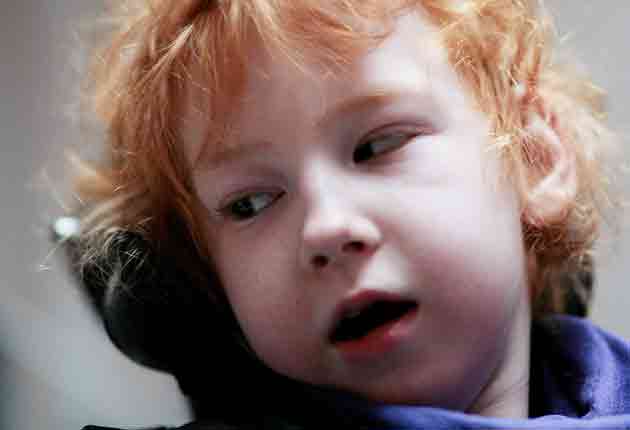Cameron bears brunt of anger at funding cuts for care of disabled

Your support helps us to tell the story
From reproductive rights to climate change to Big Tech, The Independent is on the ground when the story is developing. Whether it's investigating the financials of Elon Musk's pro-Trump PAC or producing our latest documentary, 'The A Word', which shines a light on the American women fighting for reproductive rights, we know how important it is to parse out the facts from the messaging.
At such a critical moment in US history, we need reporters on the ground. Your donation allows us to keep sending journalists to speak to both sides of the story.
The Independent is trusted by Americans across the entire political spectrum. And unlike many other quality news outlets, we choose not to lock Americans out of our reporting and analysis with paywalls. We believe quality journalism should be available to everyone, paid for by those who can afford it.
Your support makes all the difference.David Cameron's attempts to calm the storm over cuts in care for a severely disabled child were overwhelmed yesterday, as more parents came forward to say they were also being refused help in caring for their disabled children following council cuts.
The anger was sparked after Riven Vincent, the mother of a severely disabled child from Staple Hill, Bristol, used a forum on Mumsnet, the influential website that was a key political battleground of the general election, to announce that she was receiving so little support from her local authority that she had been forced to consider putting her daughter into care.
The posting quickly went viral and caused a political crisis for the Prime Minister, after it emerged he had visited the Vincent family during last year's general election campaign and promised he would not do anything to harm disabled children if he was elected prime minister.
Mrs Vincent's daughter Celyn, six, suffers from severe quadriplegic cerebral palsy and epilepsy. She needs round-the-clock attention and when the family asked social services for extra support they were told there were no resources available to them.
Mrs Vincent said yesterday: "We are crumbling. I have no wish to put my daughter into a home. We want to look after her. All I am asking for is a little more support. Without this we simply cannot cope and nor can families up and down the country just like ours."
Parents with similar problems came forward, despairing as local councils try to slash their budgets under pressure from Westminster.
At the heart of the debate is the funding available for respite – allotted time, sometimes as little as a few hours a week, where care workers look after disabled children to give their parents a break. The Government has set aside £800m over the next four years for care packages but the money is not ring-fenced, meaning local authorities can use it if they need to plug holes in their budgets elsewhere.
Clair Lewis, a disabled mother from Manchester who has three children, one of whom is severely autistic, said: "I've been trying to get care workers to come to my home for two hours a day so that I can cook my other children tea without having to keep an eye on my son. All I've been offered so far is three hours a month. It's exhausting."
Jon Woodhead, whose three-year-old daughter Ellen has cerebral palsy, is quadriplegic and blind, added: "Our attempts to get further help in terms of respite care from the local authority have also met with refusal, and they [the local authority] refuse to recognise any need to commit to an ongoing level of contact or duty of care.
"Whilst everyone must shoulder some of the burden of the economic cuts that are necessary, targeting the vulnerable by reducing support for disabled people is sheer cowardice."
The Prime Minister, whose profoundly disabled son, Ivan, died two years ago, publicly expressed his sympathy for the Vincent family and promised he would look into their case. "I have experience of this myself, and I know how tough and hard it can be, and how so many families can get to the end of their tether and just not know how they are going to go on caring for someone they absolutely love and feel a great joy from, as well as a huge amount of challenge in their lives," he said.
Respite is not the only area where the disabled and their carers are feeling the crunch. The Government has signalled its intention to do away with the mobility provision within the disability living allowance for those living in residential care. Charities say such a move will make disabled people even more reliant on care institutions.
There is also a proposal to make people claiming for disability benefits re-apply to prove that they are entitled to them. The idea is to cut down on benefit fraud. But critics say the plans force the disabled, including children, to "re-prove" their disability.
Jonathan Bartley, another parent with a disabled child who confronted Mr Cameron during the campaign trail, said: "This government is essentially approaching disability as a purely medical issue. They should be seeing it as a social issue – that disability is effectively caused by society's attitude and a lack of support. I worry that my son will have to go through a very invasive physical examination to assess his so-called 'problems'."
Join our commenting forum
Join thought-provoking conversations, follow other Independent readers and see their replies
Comments